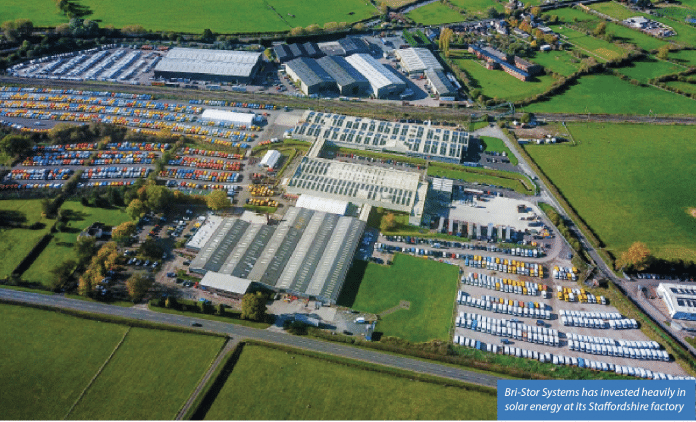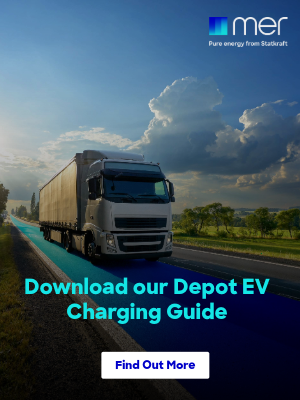Supplier Insight: Bri-Stor Systems with Andrew Goodwin, Sales and Marketing Director
What is the history of Bri-Stor Systems and what makes you successful?
Bri-Stor Systems is a family-owned business that recently celebrated 40 years of trading. We provide a holistic conversion service that transforms vans into practical, hard-working tools and with the entire manufacturing process contained under one roof we are able to control both supply and quality of materials. Based in Staffordshire, Bri-Stor Systems is one of six divisions that form The HEX Group – which all work together to create our own internal supply chain. Our conversion kits are complimented by a range of value-adding services, commencing with the design and visualisation process where our engineering team works to understand end-user needs in the field. To ensure our customers know exactly what they’re getting, we have a dedicated prototype team where we hand-build the ‘first off’, including electrical loom configuration and third-party products such as power systems and welfare items. Scaled to handle volume, we proactively manage the entire build programme, bringing together products from multiple providers and ensuring regular communication with manufacturers, finance companies and dealers. To complete the picture, we provide in-house graphic design, print and application as well as complimentary services such as damage repair, de-fleet refurbishment, recycling and new starter kit installation.
How does Bri-Stor Systems approach sustainability as a business?
Sustainability is at the heart of our business and like many of our customers we have a clear roadmap to becoming carbon neutral. We have already made big strides towards reducing emissions, with zero waste to landfill and significant investment in renewable power, including some 1,800 solar panels on the factory roof and ambitious plans to go further. Our new range of Elite Plus conversion solutions is more sustainable by design, with up to 30% less energy used in construction and fewer welded joints, with the added benefit of lightweight construction. Our supply partners have an important role to play in our sustainability offering to customers and here we actively seek out third party solutions that offer environmental benefits, providing consultative support to help incorporate green technologies such as non-slip floors comprising recycled materials or connecting solar panels on EV’s to maintain battery health.
While sustainability is often discussed in terms of green energy and environmental impacts, we prefer to see the bigger picture. People are arguably the most important aspect of sustaining a healthy business and with over 500 colleagues across The HEX Group, our investment to them is as important as any investment in our facilities or products. With this in mind, we continue to invest in our thriving apprenticeship programme, which welcomes over 20 apprentices each year. Investing in young people and providing a wide range of career paths is a key sustainability factor and they certainly bring a level of energy and enthusiasm that feels very renewable.
How is the drive towards sustainability impacting customer behaviour in the conversion market?
We have already converted hundreds of fully electric vehicles and supported the operational roll-out for some of the UK’s largest fleet operators. Our customers are keen to embrace green technology however they are all at different points in the transition to electric vehicles and continue to face challenges in wider adoption across their fleets. Given the nature of the work they do, the onboard equipment and the productivity required each day from engineering and technicians, there has been some reluctance to change too quickly due to range and charging infrastructure limitations. As we all move towards a low carbon future, we’re seeing fleet operators take a more holistic approach to vehicle conversions, embracing new innovations that offer additional sustainability benefits. From in-vehicle charging and powering of external impact tools, through to re-using storage and racking components and recycling vinyl graphics, there is growing interest in what more can be done to de-carbonise fleets and progress the environmental qualities of the converted vehicle as a whole. This is even true of energy-demanding jobs such as compressing air to achieve certain flow rates, and for these and similar applications there is a real drive to consider sustainable power alternatives.
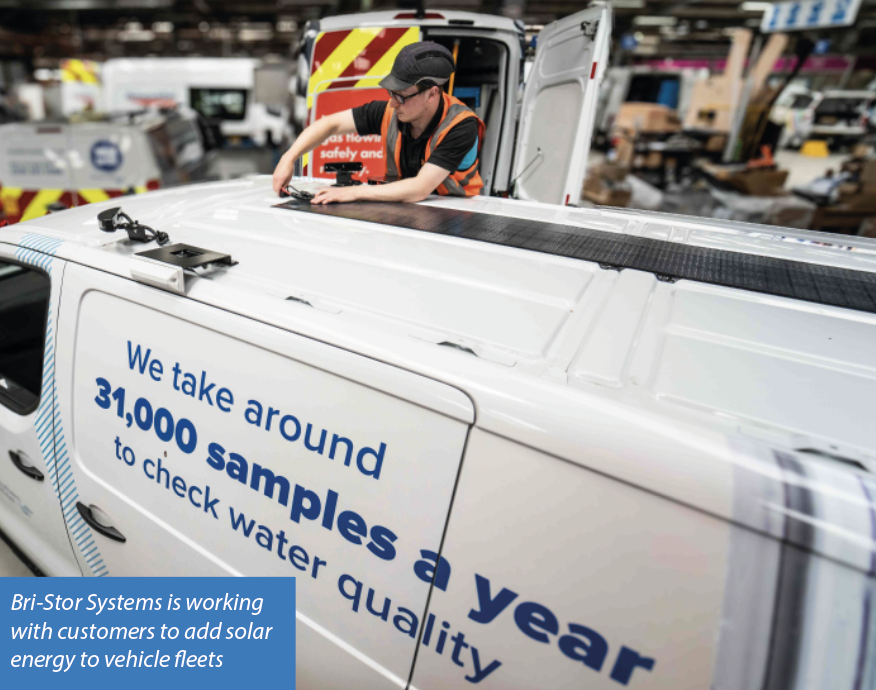
What elements of the conversion are particularly challenging from a sustainability perspective?
Onboard equipment such as compressors, tyre machines and welding equipment have historically proved challenging to power sustainably due to high-energy demands and usage frequency. These items are typically powered by running the vehicle engine or via a separate generator, both of which inefficiently consume fuel, emit high levels of CO2 and noxious gasses and add to noise pollution. Lithium battery and storage systems have rapidly evolved and now provide viable alternatives to these traditional systems. The tyre industry – where mobile fitters change a high volume of tyres on a daily basis – is a perfect example of a sector in need of innovation. To help with this challenge we have been working with an industry-leading mobile tyre provider to develop a system capable of eliminating engine idling, testing extensively in the field over a two-year period. Lithium batteries are charged as the vehicle drives between jobs with the added benefit of shoreline charging and remote monitoring of battery health. The system is capable of powering tyre-changing equipment for two vehicle life-cycles covering 8-10 years, with the investment more than paid for by a significant reduction in fuel cost. In other applications, we are working with a major water company to deploy lithium and solar on every vehicle to enable sustainable charging of power tools and welfare equipment and will shortly be commencing trials of an upscaled lithium solution that can replace towable generators used in the construction sector. Vehicle graphics has also presented a sustainability challenge. The good news is that we now have livery solutions for our customers that are carbon neutral with waste that is capable of being recycled into secondary-life products.
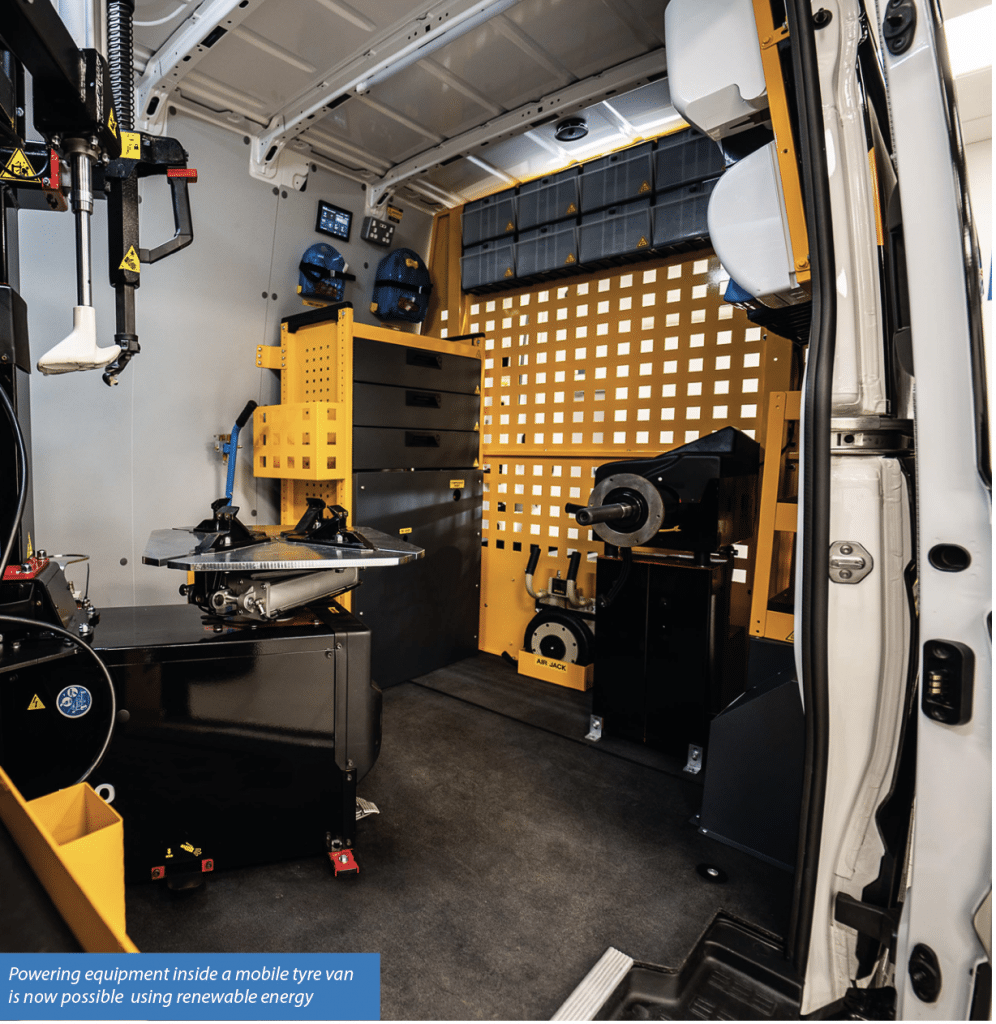
To what extent are conversion systems recycled today?
Deploying a conversion kit for a secondary life seems like a good idea, not simply because of the environmental upside of manufacturing less material, but because of the potential whole life cost benefit. It makes sense to take these high-quality, durable storage systems and fit them to the next vehicle, rather than the conversion offering little or no residual value at the point of remarketing. We have trialled this extensively with a major fleet operator with good overall results, although there are several factors to consider that contribute to this not being as efficient as first appears, such as the requirement to make new floors, electrical looms and vehicle graphics, plus the labour and cost associated with de-installation and refurbishment. That said, we believe there is scope to drive efficiency in the process and offer a solution that addresses a relatively unexplored aspect of recycling and in doing so, contribute to the circular economy. Our new Elite Plus range of conversion solutions is more modular in design and with OEMs sharing more platforms, there should be scope to improve sustainability in this area. Our facilities are geared to support the logistics associated with this process and add value at the point of de-fleet.
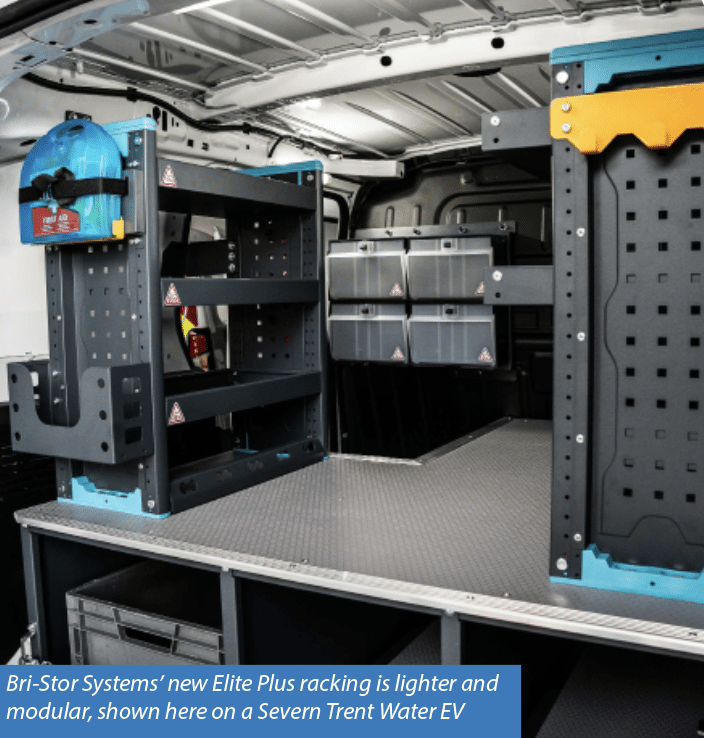
How does Bri-Stor Systems support sustainability in relation to the investment customers make in tooling and equipping vehicles?
We offer a variety of services that support the vehicle de-fleet process where there are opportunities for recycling of both high-value equipment and low-value tooling. Our Neptune warehouse and logistics team support one particular major fleet operator in refurbishing and reusing a variety of items, for example, small hand tools and power tools that are checked, tested and upcycled for inclusion in new vehicle kits. This service extends to the refurbishment of higher value items ready for a secondary life, such as compact trailers that are used by the roadside recovery sector. When trailers reach the end of their usable life, we remove serviceable parts and manage the spares inventory ongoing. As more customers deploy lithium battery units to provide sustainable power in the vehicle load area or to power external equipment, there will be a requirement to assess battery health at the end of life and determine the appropriate route for recycling or redeployment.
Vehicle graphics seem to be increasingly used to promote a company’s brand and message, but is the industry and the materials it produces, truly sustainable?
With the diverse and colourful range of vehicle livery on our roads today, it’s rather ironic that a beige coloured vehicle wrap started the trend in Germany, back in the 1970’s, in response to a government edict that all taxi’s be easy to recognise. With advancements in digital design and printing the vehicle graphics industry has grown rapidly since the turn of the century, although the environmental impact of vinyl manufacturing and waste management has not really been understood or sustainable options made available. The fleet sector has a very low awareness of the provenance of vinyl or of the waste generated, either at the point of new vehicle commissioning or on disposal. As part of our ongoing sustainability projects, we have tackled this head on, working with an innovative UK-based manufacturer to offer a suite of vinyl materials that are carbon neutral at source, whilst offering exceptional durability and quality in life. Through our HEX Graphics division, we have invested in facilities to segregate and compact both paper and vinyl waste material, with specialist recycling partners turning this into useful secondary life products such as the Mipad – a high-quality notebook made from recycled graphic paper. Several large fleet operators have adopted these sustainable vinyl materials and are now making their own contribution to the circular economy.
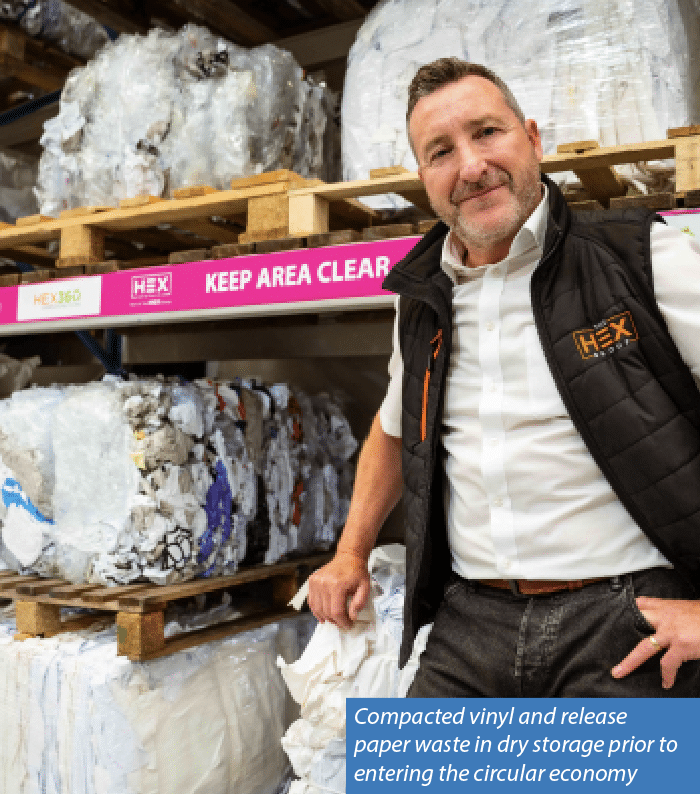

For more information visit www.bri-stor.co.uk or email andrew.goodwin@bri-stor.co.uk
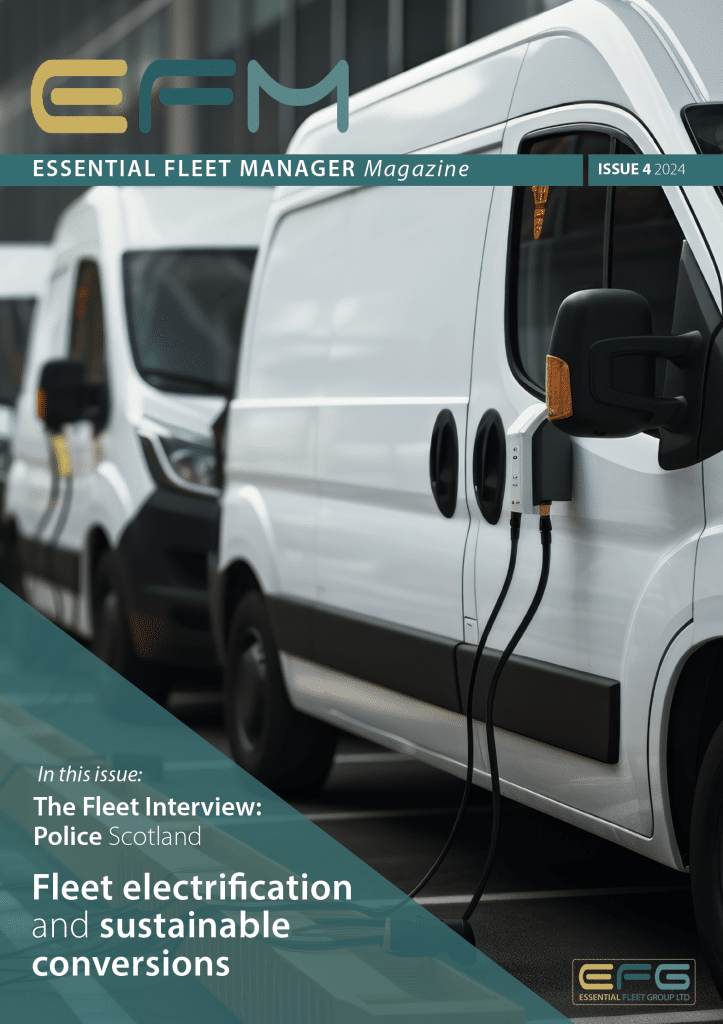
The above article was featured in Essential Fleet Manager Issue 4(2024) – view this issue

